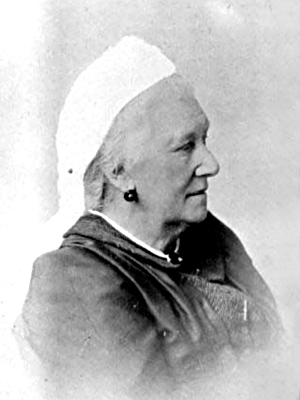Women's suffrage in New Zealand
Women's suffrage in New Zealand refers to the right of women to vote in elections, a significant milestone in the country's history. New Zealand was the first self-governing country in the world to grant women the right to vote, which occurred in 1893.
Historical Background[edit | edit source]
The movement for women's suffrage in New Zealand began in the late 19th century, influenced by similar movements in other countries. The Women's Christian Temperance Union (WCTU) played a crucial role in advocating for women's voting rights. The WCTU, led by prominent suffragist Kate Sheppard, organized petitions and campaigns to raise awareness and support for the cause.
Key Figures[edit | edit source]
Kate Sheppard is the most well-known figure in the New Zealand women's suffrage movement. Her leadership and dedication were instrumental in the success of the movement. Other notable figures include Meri Te Tai Mangakāhia, who advocated for Māori women's suffrage, and Mary Ann Müller, an early suffragist and writer.
The Suffrage Petition[edit | edit source]
In 1893, a petition with nearly 32,000 signatures was presented to the New Zealand Parliament. This petition was a significant factor in the passing of the Electoral Act 1893, which granted women the right to vote. The petition is one of the largest ever presented to the New Zealand Parliament and is a testament to the widespread support for women's suffrage.
The Electoral Act 1893[edit | edit source]
The Electoral Act 1893 was a landmark piece of legislation that granted all women in New Zealand the right to vote in parliamentary elections. The Act was passed on 19 September 1893, and women voted for the first time in the general election held on 28 November 1893.
Impact and Legacy[edit | edit source]
The success of the women's suffrage movement in New Zealand had a profound impact both nationally and internationally. It set a precedent for other countries and inspired suffrage movements worldwide. In New Zealand, it led to increased political participation by women and greater attention to women's issues in politics.
Related Pages[edit | edit source]
- Kate Sheppard
- Women's Christian Temperance Union (New Zealand)
- Electoral Act 1893
- Meri Te Tai Mangakāhia
- Mary Ann Müller
- History of New Zealand
- Suffrage in New Zealand
See Also[edit | edit source]
References[edit | edit source]
External Links[edit | edit source]
Search WikiMD
Ad.Tired of being Overweight? Try W8MD's NYC physician weight loss.
Semaglutide (Ozempic / Wegovy and Tirzepatide (Mounjaro / Zepbound) available. Call 718 946 5500.
Advertise on WikiMD
|
WikiMD's Wellness Encyclopedia |
| Let Food Be Thy Medicine Medicine Thy Food - Hippocrates |
Translate this page: - East Asian
中文,
日本,
한국어,
South Asian
हिन्दी,
தமிழ்,
తెలుగు,
Urdu,
ಕನ್ನಡ,
Southeast Asian
Indonesian,
Vietnamese,
Thai,
မြန်မာဘာသာ,
বাংলা
European
español,
Deutsch,
français,
Greek,
português do Brasil,
polski,
română,
русский,
Nederlands,
norsk,
svenska,
suomi,
Italian
Middle Eastern & African
عربى,
Turkish,
Persian,
Hebrew,
Afrikaans,
isiZulu,
Kiswahili,
Other
Bulgarian,
Hungarian,
Czech,
Swedish,
മലയാളം,
मराठी,
ਪੰਜਾਬੀ,
ગુજરાતી,
Portuguese,
Ukrainian
Medical Disclaimer: WikiMD is not a substitute for professional medical advice. The information on WikiMD is provided as an information resource only, may be incorrect, outdated or misleading, and is not to be used or relied on for any diagnostic or treatment purposes. Please consult your health care provider before making any healthcare decisions or for guidance about a specific medical condition. WikiMD expressly disclaims responsibility, and shall have no liability, for any damages, loss, injury, or liability whatsoever suffered as a result of your reliance on the information contained in this site. By visiting this site you agree to the foregoing terms and conditions, which may from time to time be changed or supplemented by WikiMD. If you do not agree to the foregoing terms and conditions, you should not enter or use this site. See full disclaimer.
Credits:Most images are courtesy of Wikimedia commons, and templates, categories Wikipedia, licensed under CC BY SA or similar.
Contributors: Prab R. Tumpati, MD






